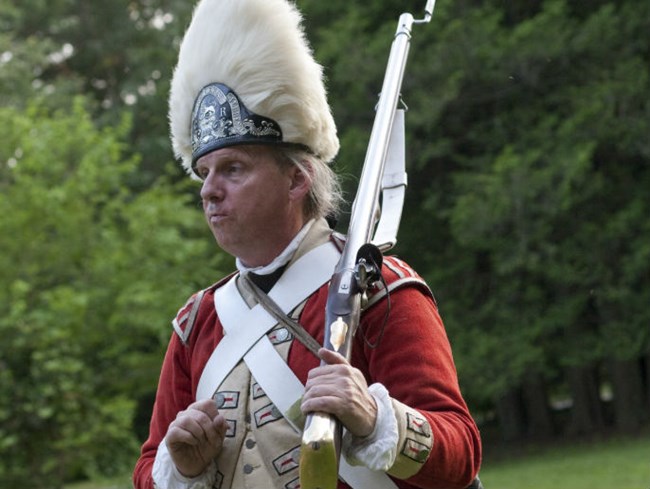Depositions from Two Prisoners of War
Last month I wrote about a couple of the British officers who were captured on 19 Apr 1775.
While Gen. Thomas Gage’s report on the battle for London listed all those officers by name, the much larger group of “missing” were enlisted men. Some of those redcoats were dead or dying, but most had been taken prisoner, more or less willingly.
Within a few days the Massachusetts Provincial Congress published depositions from two of those enlisted men, then being held as prisoners of war. Here’s what they had to say:
Right now I’m less interested in what those men said, possibly under duress or inducement, and more in the circumstances of their depositions. For example, both men had to have been at both Lexington and Concord, yet each testified for the record about only one confrontation. What else had they seen? How had they been captured? We don’t know because the congress was collecting information for propaganda reasons, not history.
TOMORROW: Details of the depositions.
While Gen. Thomas Gage’s report on the battle for London listed all those officers by name, the much larger group of “missing” were enlisted men. Some of those redcoats were dead or dying, but most had been taken prisoner, more or less willingly.
Within a few days the Massachusetts Provincial Congress published depositions from two of those enlisted men, then being held as prisoners of war. Here’s what they had to say:
I, John Bateman, belonging to the fifty second regiment, commanded by Colonel [Valentine] Jones, on Wednesday morning, on the nineteenth day of April instant, was in the party marching to Concord. Being at Lexington, in the county of Middlesex, being nigh the meeting-house in said Lexington, there was a small party of men gathered together in that place, when our said troops marched by; and I testify and declare, that I heard the word of command given to the troops to fire, and some of said troops did fire, and I saw one of said small party lie dead on the ground nigh said meeting-house; and I testify, that I never heard any of the inhabitants so much as fire one gun on said troops.The Massachusetts Provincial Congress thus had British soldiers stating under oath that their side had fired first at both Lexington and Concord. The congress eagerly published that testimony to the world.
I, James Marr, of lawful age, testify and say, that in the evening of the eighteenth instant, I received orders from [Lt.] George Hutchinson, adjutant of the fourth regiment of the regular troops stationed in Boston, to prepare and march: to which order I attended, and marched to Concord, where I was ordered by an officer, with about one hundred men to guard a certain bridge there. While attending that service, a number of people came along, in order, as I supposed, to cross said bridge, at which time a number of regular troops first fired upon them.
Right now I’m less interested in what those men said, possibly under duress or inducement, and more in the circumstances of their depositions. For example, both men had to have been at both Lexington and Concord, yet each testified for the record about only one confrontation. What else had they seen? How had they been captured? We don’t know because the congress was collecting information for propaganda reasons, not history.
TOMORROW: Details of the depositions.


No comments:
Post a Comment